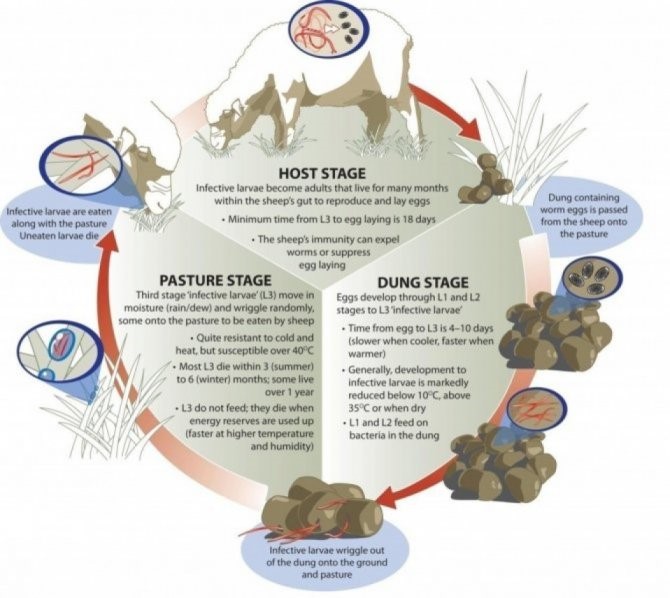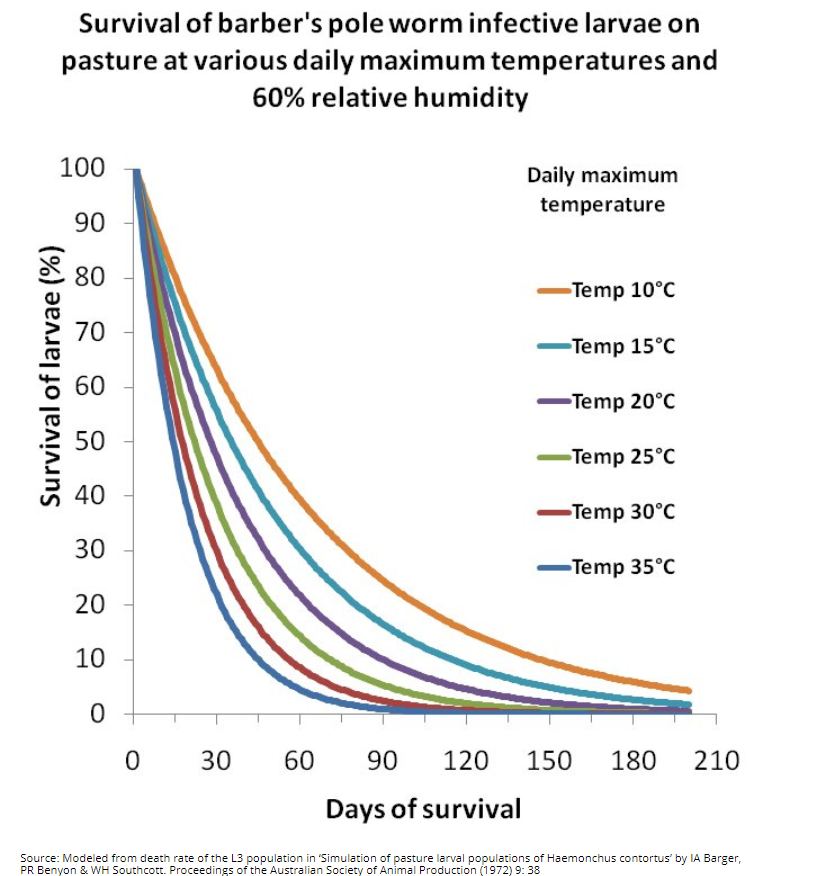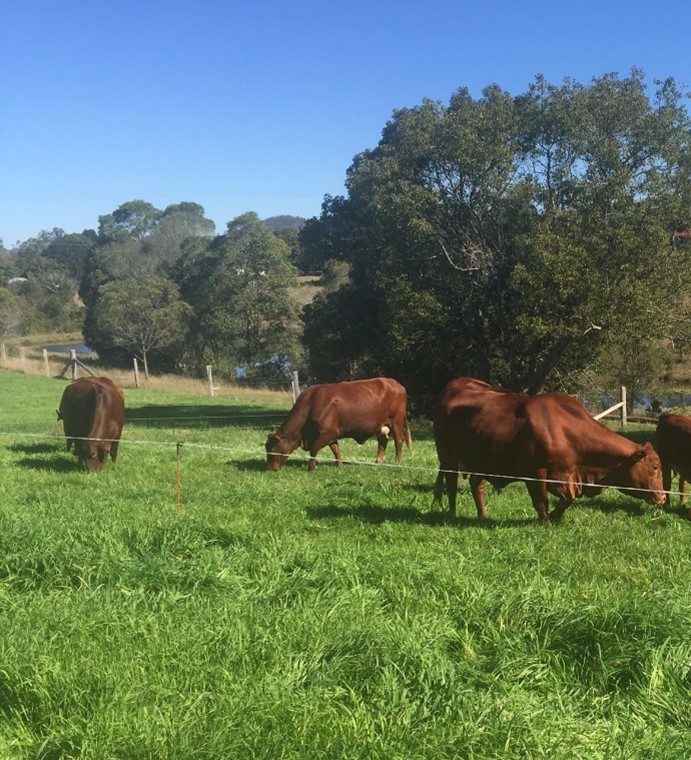In previous posts we have touched on buffalo fly and ticks. Internal worms are the next in the parasite trifecta. Internal parasites are relatively easy to avoid, but very difficult to get rid of once infection occurs. As with all organic farming – pro-active management is the key.
 In a nutshell the lifecycle of an internal parasite requires a host stage, a dung stage and a pasture stage.
In a nutshell the lifecycle of an internal parasite requires a host stage, a dung stage and a pasture stage.
1 Infective larvae become egg laying adults within the gut of the host.
2 Host animal passes dung containing worm eggs onto pasture.
3 Infective larvae hatch and wriggle out of the dung and move in moisture (dew and rain) over pasture.
4 Infected larvae are eaten along with the pasture by the grazing animal BUT uneaten larvae die.
When animals have constant access to the same ground it is impossible for them to avoid infection by worms. The simple act of moving animals onto fresh pasture and not returning them to the old pasture for a period of time WILL BREAK THE WORM CYCLE.
In cattle we have always worked on an absolute minimum 3 week rotation (it varies with time of year) with good effect but some parasites can survive longer. Barbers Pole in sheep for example can take several months. Survival of larvae is related to heat and moisture but the take home message is – the longer the larvae goes without an animal host, the less likely it is to survive.

A roll of electric braid, some portable posts and an electric fence energizer is a relatively cheap way to break up your paddocks. It might seem like a lot of work but the benefits of doing so will far outweigh the effort required. Remember in nature large herbivores move across landscapes, not returning to the same area for weeks, a season or perhaps longer. By mimicking this process on the landscapes we manage we are working in harmony with how plants and animals have evolved to prosper. There are many reasons why time managed grazing of your pastures is important and managing parasites is just one of them. We will discuss other benefits next issue.
In the meantime, if you have questions or require practical problem solving then come and see us at the Kandanga Farm Store.
By Amber Scott. Originally written for the Mary Valley Telegraph March 2023 Edition.
